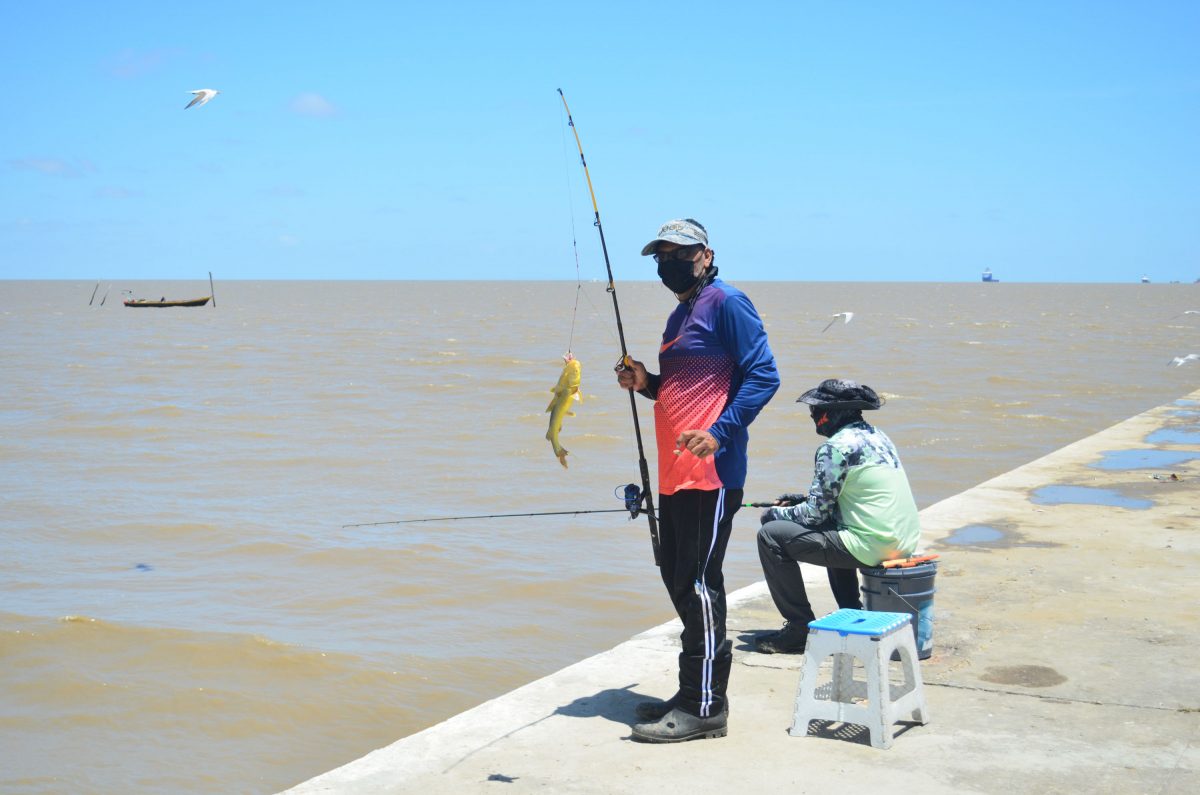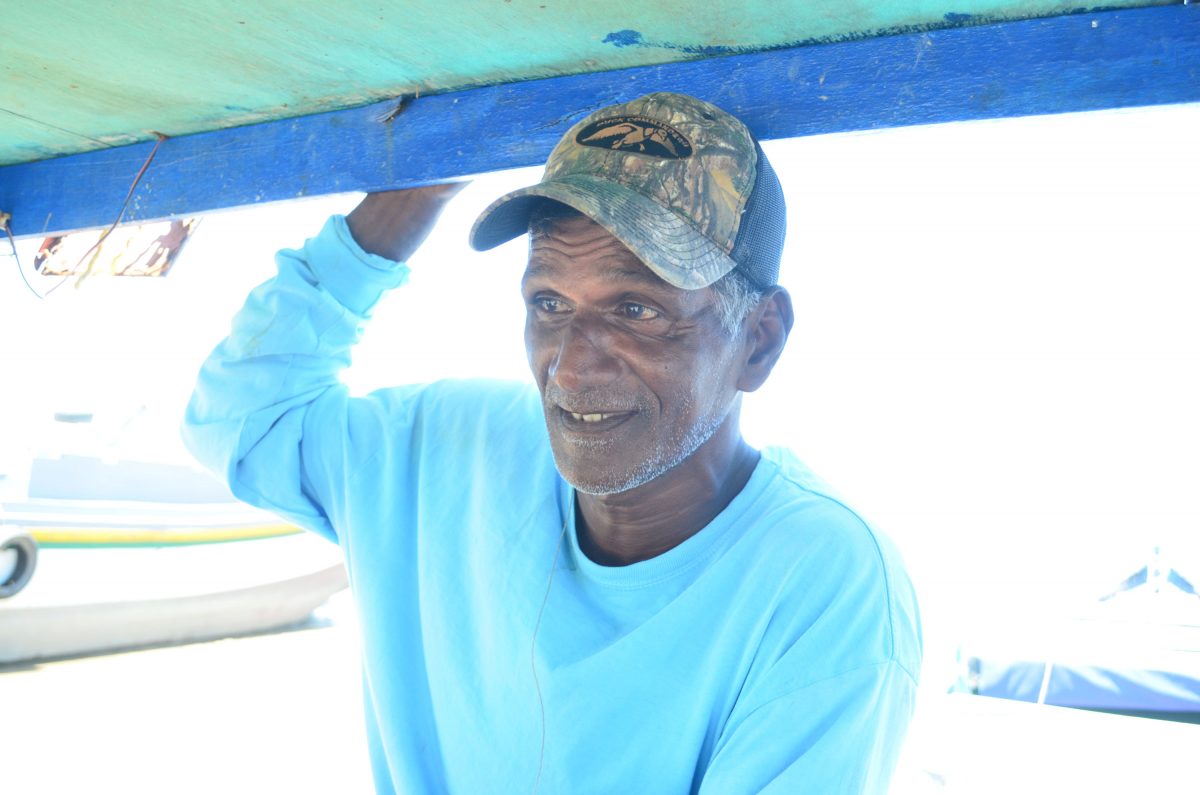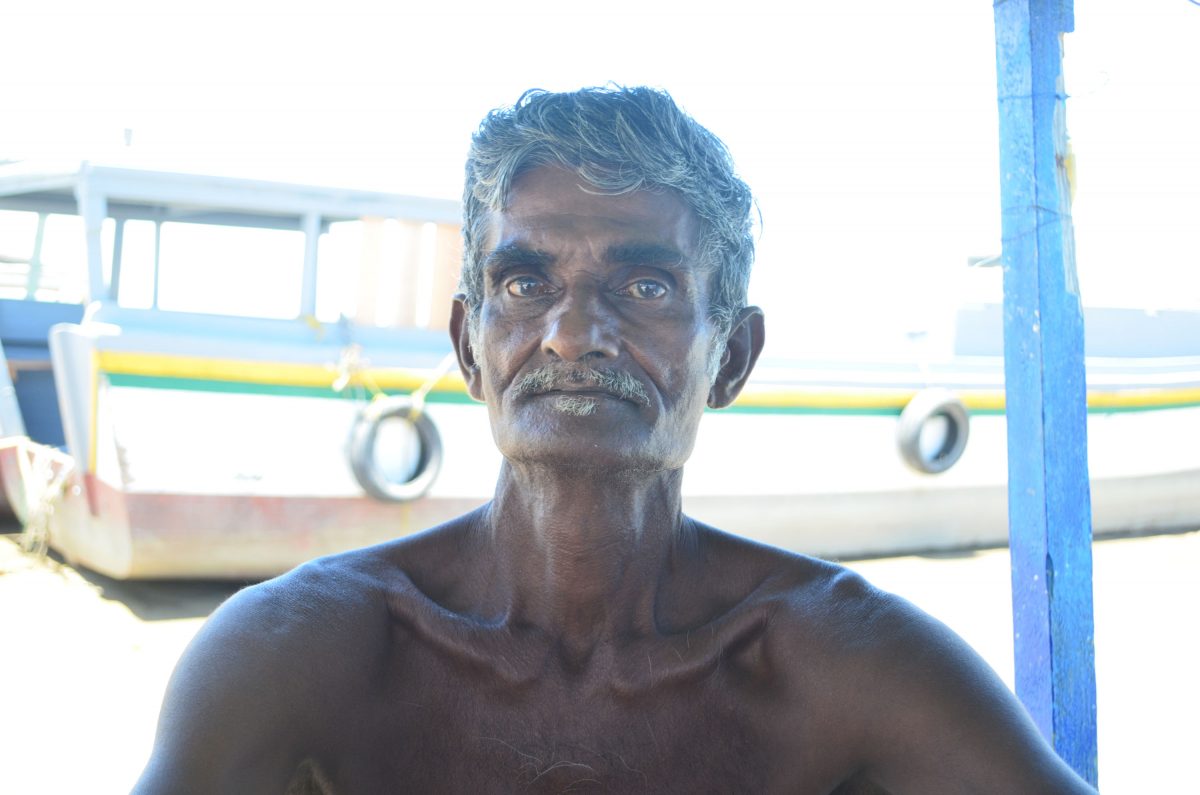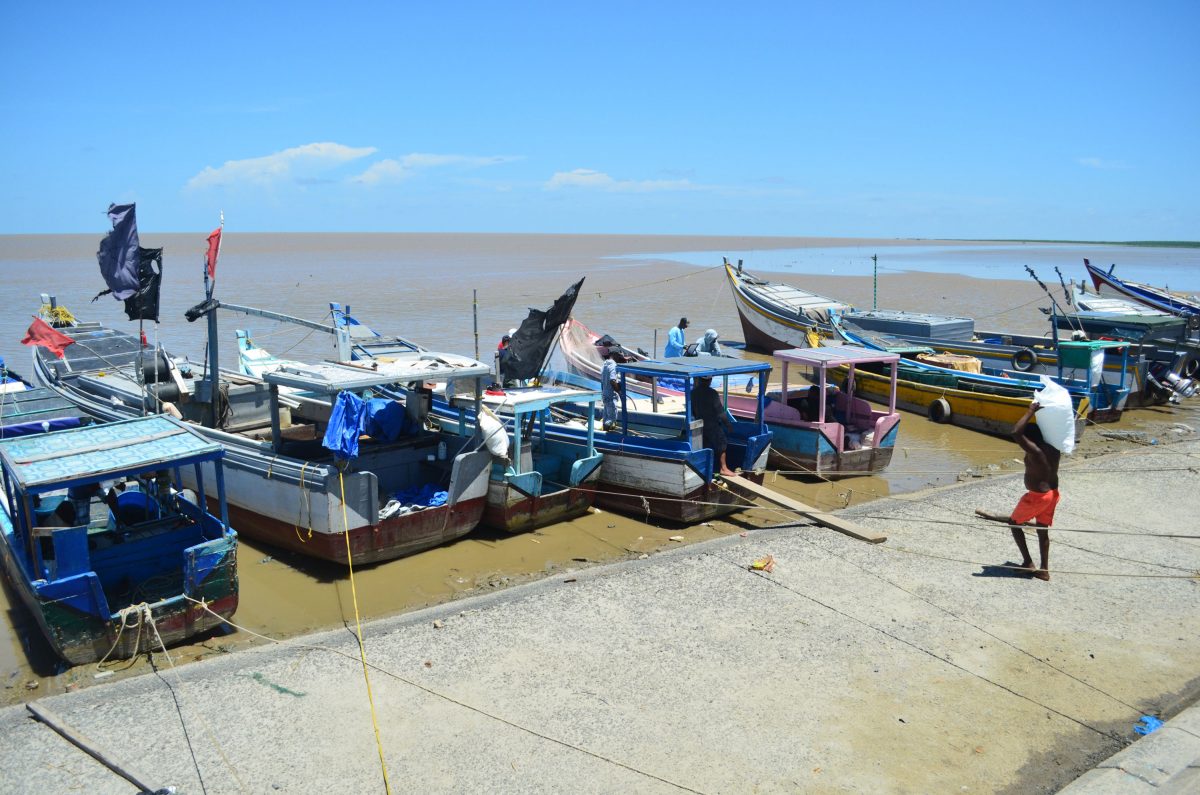Photos by Orlando Charles
It was a normal sunny mid-morning in Georgetown. Everyone went about their business as usual – that is, everyone, except for a few small-scale fishermen. Usually, at that hour, the coastline would be almost empty of fishing boats except for a boat or two but today the coastline was populated with a dozen or more.
The reason for a more than dozen boats being moored along the coastline can be learnt when one listens in as the fishermen chatted noisily. Some spoke about when their next trip would be and if it would be successful, while others debated whether they should continue fishing. Whatever their life-changing prospect was about, they were only too happy to speak to Stabroek News. Along the coast of Georgetown, are many changes that are hidden from the eyes of most of the everyday visitor. Yet, a fisherman can tell a tale and much more, when given the opportunity. Seewh, popularly known as ‘Sella’ has been fishing off the coast of Georgetown for 50 years. He went on his first fishing trip at the tender age of nine and immediately “fell in love.” Fifty years on, Sella’s feelings for his trade have not changed which he continues to ply as a small-scale fisherman, albeit with a lot more worries. For most of his career, fishing was good but in the past few years he began to recognize the changes that were occurring around him.
The fish bounty he depended on was beginning to dwindle. For years, he said, the weather pattern remained consistent. How-ever, in the last five years, there was increased precipitation, even during the dry season. This affected all small-scale fishermen, he said, but they managed to adapt to the new emerging patterns. Another fisherman, John Smith said that the most significant change that he has observed is the fluctuating weather patterns which was brought to the fore only this year. “It was always changing but this year it suddenly got more intense,” he said. Before this year while the weather pattern was already notably changing, they programmed themselves on when to go fishing. “There was still a pattern and we adapted to it but now it’s just unpredictable,” he explained.
Smith has been a fisherman since the seventies, and today does most of his fishing closer to shore – at the Kingston side of the Georgetown seawall. He attributed the now-unpredictable weather patterns to climate change. Climate change is the long-term alteration of global temperature and weather patterns. The cause of current climate change is largely human activity, like burning fossil fuels, natural gas, oil, and coal. Burning these materials releases greenhouse gases into earth’s atmosphere. These fishermen are convinced that the minor meteorological changes that they were observing over the past few years have become extreme to the point where their livelihoods are being directly threatened.
“Things tough right now. Rain falling and falling like it nah wan stap. First time me see rain fall so heavy and all the time. It affecting we fishing. We can’t get no fish when we go out. We trying but we barely getting,” another fisherman, Ramesh interjected. Another fisherman immediately agreed, saying: “Right now fish nah catch. You nah get the amount of fish that you does catch long time, because of everything that a go on right now,” he said. Added to that, Sella said, gasoline and ice prices have gone. To go on a one-day fishing expedition at sea now costs about $400, 000 and despite the size of their boats, they usually spend 14 to 15 days at sea. Small-scale fishing has become an expensive risk. However, while the current weather pattern is the main contributor to their plights, the fishermen feel neglected by the government especially since oil extraction commenced about two years ago.
They explained that they were the persons who would be directly affected by oil exploration and production activities, but they were never consulted or offered a solution when they were banned from fishing at some of their usual fishing grounds. “We born here. We fishing here for years and making a living for we and we families and then Exxon come and upset our fishing grounds. They want us keep away miles and miles from the fish beds so we are not catching much fish. We can’t go far out at sea, so what is going to happen to us?” Sella asked. He further added that the Government is not doing anything to assist them and wondered if “the small man” ever crossed their minds but immediately recanted, saying that they (the government) do think about fishermen when they need money for taxes and other fees. “The Government don’t care nothing about fishermen. They only want us to pay our fee but no solution to our problems. They acting like to we don’t have feelings,” Sella said, before adding that they don’t have any representatives to voice their concerns.
While noting that there are several representatives of the fishing industry in Guyana, most just ask for money – a luxury that they do not have because of the current state of the situation. In addition, they fear they their observations will be mocked. “They will say we don’t know what we are talking about but we know what. We know the coast land and the nearby sea like is we home. Is we home then,” Ramesh said. The Intergovernmental Panel on Climate Change (IPCC) a United Nations body for assessing the science related to climate change, in a recent report said that the intensity and frequency of extreme precipitation and pluvial floods are projected to increase for 2°C of global warming level and above in the Northern South American area of which Guyana forms part of. IPCC said that the relative sea level rise is extremely likely to continue in the oceans around Central and South America, contributing to increases in coastal flooding in low-lying areas and shoreline retreat along most sandy coasts.
Marine heatwaves are also projected to increase around the region over the 21st century. According to IPCC, compared to global mean sea level, over the last three decades, relative sea level has increased at a higher rate than global mean level in the South Atlantic and the subtropical North Atlantic, and at a lower rate in the East Pacific.













